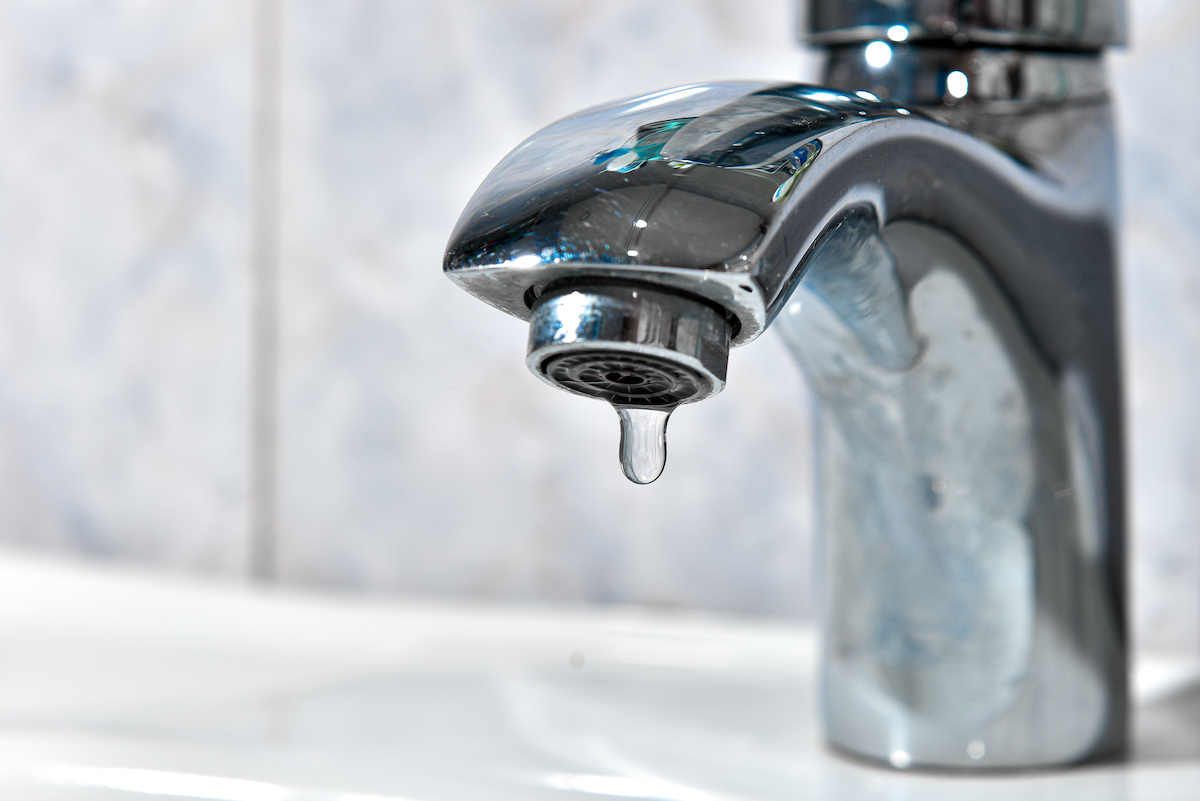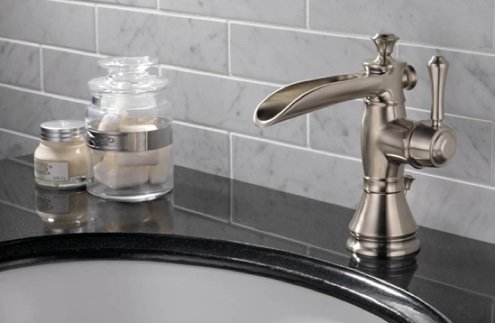Why It's Necessary to Address a Broken Faucet
Why It's Necessary to Address a Broken Faucet
Blog Article
Nearly everybody will have their own thinking involving Why It's Important to Fix Leaky Faucets.

Trickling faucets may look like a small inconvenience, however their influence goes beyond just the aggravation of the noise. From drainage to incurring unnecessary monetary expenses and wellness threats, ignoring a dripping faucet can bring about numerous repercussions. In this write-up, we'll look into why it's essential to address this common household problem without delay and efficiently.
Waste of Water
Ecological Influence
Trickling taps contribute considerably to water wastage. According to the Environmental Protection Agency (EPA), a solitary tap trickling at one drip per secondly can lose more than 3,000 gallons of water each year. This not only stress water sources however likewise affects communities and wild animals based on them.
Financial Prices
Enhanced Water Expenses
Past the environmental effect, leaking taps can inflate water costs significantly. The gathered waste over time converts into greater energy expenditures, which could have been stayed clear of with timely fixings.
Possible Building Damages
Moreover, long term leaking can result in harm to fixtures and surface areas surrounding the faucet. Water build-up can create discoloration, corrosion, and also architectural problems if left ignored, resulting in added repair service costs.
Wellness Worries
Mold and Mold Growth
The consistent visibility of moisture from a trickling tap creates an ideal atmosphere for mold and mildew and mildew development. These fungi not only endanger indoor air quality however additionally pose health and wellness threats, especially for people with breathing problems or allergic reactions.
Waterborne Conditions
Stagnant water in dripping taps can become a breeding ground for bacteria and various other pathogens, raising the danger of waterborne diseases. Pollutants such as Legionella bacteria thrive in stagnant water, possibly resulting in significant health problems when consumed or inhaled.
Do it yourself vs. Expert Repair work
Pros and Cons of DIY Repair Service
While some might attempt to take care of a dripping tap themselves, do it yourself repair services come with their own set of obstacles. Without appropriate understanding and tools, do it yourself attempts can exacerbate the issue or lead to incomplete fixings, prolonging the trouble.
Advantages of Hiring a Professional Plumber
Hiring a specialist plumber makes certain that the underlying source of the leaking faucet is attended to properly. Plumbing technicians have the know-how and devices to diagnose and repair tap issues efficiently, conserving time and lessening the risk of more damage.
Step-by-Step Overview to Repairing a Dripping Tap
Tools Required
Prior to trying to take care of a dripping tap, gather the essential tools, consisting of an adjustable wrench, screwdrivers, replacement parts (such as washing machines or cartridges), and plumber's tape.
Common Tap Issues and Their Solutions
Recognize the kind of tap and the specific issue creating the drip. Common issues consist of damaged washers, rusty shutoff seats, or faulty O-rings. Refer to supplier instructions or on the internet tutorials for detailed advice on repairs.
Preventive Measures
Normal Maintenance Tips
To avoid leaking taps, execute routine maintenance such as cleansing aerators, inspecting for leaks, and replacing damaged parts without delay. In addition, take into consideration setting up water-saving gadgets or updating to extra reliable components.
Relevance of Prompt Services
Addressing dripping taps as quickly as they're observed protects against more water wastage and prospective damage, ultimately conserving both water and money in the long run.
Impact on Home Value
Assumption of Well-Maintained Residential Property
Keeping a building in good condition, including resolving maintenance concerns like dripping taps, boosts its perceived worth and worth among prospective customers or renters.
Influence on Resale Value
Features with well-maintained plumbing components, consisting of taps, command greater resale values in the real estate market. Dealing with leaking taps can contribute to a positive impression during home assessments and negotiations.
Environmental Duty
Individual Contribution to Conservation
Taking duty for taking care of leaking faucets aligns with wider initiatives towards water conservation and environmental sustainability. Every person's activities jointly make a significant effect on protecting priceless sources.
Sustainable Living Practices
By focusing on timely repair services and taking on water-saving behaviors, people add to lasting living methods that profit both existing and future generations.
Conclusion
Resolving a leaking faucet surpasses simple benefit; it's a vital action towards saving water, reducing monetary costs, and securing health and residential property. Whether via DIY repair services or professional help, doing something about it to repair trickling faucets is a little yet impactful means to advertise liable stewardship of sources and add to a much healthier, extra sustainable future.
How to Fix a Leaky Faucet: Step-by-Step Repair Guide
A leaky faucet may seem like a simple annoyance, but if it's not fixed promptly, that leak could cost hundreds to potentially thousands. From water damage to mold, mildew, and high water bills, even a tiny leak can be catastrophic if left unattended. Damage like this can even affect the overall value of your home, so it's important to take the right approach for leaky faucet repair. You may need the help of a plumber in some cases, but we've got a few tips you can try on how to fix a leaky faucet before calling the pros.
Four Faucet Types
When you're learning how to fix a leaky faucet, the first step is knowing what kind of faucet you're working with! There are four common types.
Cartridge Faucets
Cartridge faucets come in one- or two-handled varieties. In one-handled cartridge faucets, hot and cold water combines in a single cartridge. In the two-handled versions, hot and cold water are controlled separately and mixed in the faucet.
Ball Faucets
Ball faucets have a single lever you push up and down to adjust the pressure and rotate to change the temperature. A slotted metal ball controls the amount of water allowed into the spout.
Compression Washer Faucets
They're the oldest type of faucet, but they're still used in many homes — especially older ones. Compression faucets have two separate handles that, when turned, raise or lower the washer that seals a water valve. This valve stops water from flowing through the faucet when it is turned off.
Disc Faucets
Disc faucets rarely need to be repaired due to their maintenance-free design. The water flow is controlled by two discs — the upper one raises and lowers against a fixed lower disc, creating a watertight seal. If your disc faucet starts leaking, you may need to replace the seals or clean residue buildup from the inlets.
Fixing a Leaky Faucet
Step 1: Turn Off the Water
Whether you're learning how to fix a leaky bathtub faucet or how to fix a leaky kitchen faucet, always turn off the water supply to your working area when you're fixing a leak. The last thing you want is a flood added to your list of things to fix.
Look for the shutoff valves below your sink or around the tub and turn them clockwise to stop the water flow. If your faucet doesn't have shutoff valves, you may need to turn off the water for the whole house. Check to make sure it's off by turning the faucet on. If nothing comes out, you're ready to start the repair.
Step 2: Take Apart the Faucet
How you disassemble your faucet depends on the type of fixture you have. You can use a flathead screwdriver to remove the caps on top of the handle or handles for cartridge and compression faucets. Inside, you should see handle screws. Unscrew these with a screwdriver to remove the handle.
Disc- and ball-style faucets will typically have an inlet screw near the handle, and removing that will reveal the interior of the faucet.
Detach the Valve Stem
For cartridge- and compression-style faucets, you'll see the inner valve stem or cartridge once you remove the faucet handles. If you have a compression faucet, unscrew the brass valve stem. If you have a cartridge faucet, pull out the cartridge. If your cartridge has been in place for a while, it may require some tools or extra force to remove it due to mineral deposits.
Examine and Replace Parts
Once you've removed the parts, check them out to confirm what needs to be replaced. You may see corroded rubber washers, O-rings, stems, or cartridges. On a ball-style faucet, check the seats and springs for damage.
If you need to repair a leaky disc faucet, check the inlet and seals on the lower disc.
Once you determine what parts must be replaced, visit your local hardware store. Bring the damaged parts with you to ensure you can purchase the correct components to replace them.
Clean Valves and Faucet Cavity
If you've removed a stem or cartridge, you may notice mineral buildup in the faucet's threads. Use white vinegar to clean the valve seat by soaking it for a few minutes, then scrub it away with a soft toothbrush and rinse with warm water. You can also clean the interior of the faucet in the same way.
Reassemble the Faucet
Once your faucet is cleaned and the required parts have been replaced, it's time to reassemble it. Put the pieces back together and slowly turn the water supply back on. Doing this slowly is crucial because too much initial water pressure can damage the new hardware you've just installed.
https://homewarranty.firstam.com/blog/how-to-fix-leaky-faucet

Do you like reading about What Causes Leaky Faucets & How To Fix Them? Write a remark down below. We will be happy to hear your opinions about this piece. We hope that you visit us again in the future. Sharing is good. Helping others is fun. I cherish your readership.
Report this page